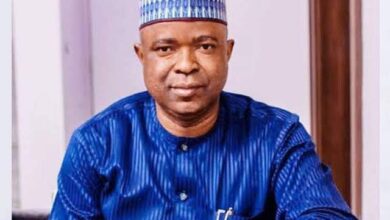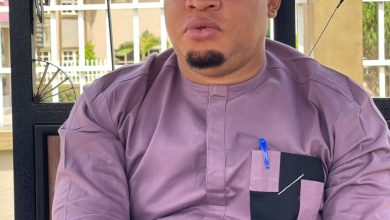Top 10 Yoruba names you never guessed were Arabic names

By Farooq A. Kperogi
I have always been fascinated by Yoruba people’s creative morphological domestication of Arabic names. There are scores of Yoruba names that are derived from Arabic but which are barely recognizable to Arabs or other African Muslims because they have taken on the structural features of the Yoruba language.
This is not unique to Yoruba, of course. As scholars of onomastics or onomatology know only too well, when proper names leave their primordial shores to other climes they, in time, are often liable to local adaptation. (Onomastics or onomatology is the scientific study of the origins, forms, conventions, history and uses of proper names. Anthroponomastics specifically studies personal names, so this article is an anthroponamastic analysis of Yoruba Muslim names). That’s why, for instance, there are many Arabic-derived personal names in Hausa, the most Arabized ethnic group in Nigeria, that would be unrecognizable to Arabs. Names like Mamman (Muhammad), Lawan (Auwal), Shehu (Sheikh), etc. would hardly make much sense to an Arab.
I am drawn to the onomatology of Arabic-derived Yoruba names because their morphological adaptation to Yoruba’s structural attributes seems to follow an admirably predictable, rule-governed pattern. I have four preliminary observations on this pattern.
One, because most Niger- Congo languages (of which Yoruba is a prominent member) end almost every word with a terminal vowel, every Arabic name borrowed into Yoruba is fitted with one. This is important because the majority of Arabic names don’t end with a vowel. To give just a few examples, Arabic names like Muhammad, Saeed, Umar, Abdulmumin, etc. (with no vowel endings) are almost always rendered as Muhammadu, Saeedu, Umaru, Abdulmumini, etc. (with vowel endings) by speakers of Niger Congo and other African languages. I have tried several times to think of any word in Yoruba and in my native Baatonu that does not end with a vowel (that is, a, e, i, o, and u) and have not had any success. So the first thing Niger Congo languages do when they borrow a foreign word is to add a terminal vowel to the word if it doesn’t have one.
Two, in most cases, when Arabic names start with a vowel, the Yoruba morphological domestication process dispenses with the initial vowels and starts pronouncing the word from the next consonant after the vowel. So, for example, Imran is often rendered as Muroino in Yoruba. I can’t explain the linguistic logic behind this since several Yoruba names begin
with vowels (e.g. Adewale, Iyabo, Olusegun, Ekundayo, etc.), but Yoruba is pretty consistent in doing away with initial vowels when it borrows names from Arabic.
Three, it also seems to be the case that whenever Yoruba borrows names from Arabic and, in fact, from all other languages, it usually replaces the “a” sound in the names with an “o” sound, especially if the “a” sound is intermediate or terminal. That’s why Rahman becomes Romonu and Imran becomes Muroino. There are exceptions, though.
Four, Yoruba Muslims tend to be way fonder of names that are derived from the 99 names of Allah than northern Nigerian Muslims. A prominent morphological feature of such names is that they are always prefixed with “Abdul,” which is Arabic for “servant.” So AbdulRaheem means “servant of the merciful.” Yoruba naming conventions tend to eliminate the “Abdul” part of the names of Allah, which northern Muslims consider borderline blasphemous because they say by dispensing with “Abdul,” bearers of such names are claiming Allah’s qualities. (My immediate younger brother is called Abdulmumin, and my dad, who is an Arabist, fought anybody, including my mother, who eliminated the “Abdul” from his name. To this day, I can’t bring myself to call my brother Mumini). This arises from the Yoruba fondness for the short forms of names. Even Yoruba names that start with “Oluwa” (God), “Ade” (royalty), “Ola” (wealth), etc. are often shortened. That’s why Oluwaseun is often rendered as Seun, Adewale as Wale, and Olanrewaju as Lanre, etc.
The following 10 Yorubaized Arabic names appear to be guided by the morphological rules I identified above.
- Bakare. This is the Yoruba rendition of Abubakar (or Abu Bakr), the nickname of the first Caliph of Islam. As you can see, the “Abu” in the name is dispensed with, and the “Bakar” part of it is fitted with a terminal vowel. Refer to rules one and two above. Perhaps the most prominent bearer of this name in contemporary Nigeria is Pastor Tunde Bakare, former vice presidential candidate to General Muhammadu Buhari. Pastor Bakare was born a Muslim but converted to Christianity in his teens.
- Buraimo. I doubt that many non-Yoruba Muslims will recognize this name as Ibrahim, but it is. It follows the second morphological principle I identified in my introductory remarks. The “I” in Ibrahim is dispensed with, and intermediate and terminal vowels are added to produce Buraimo, which is sometimes spelled as Buraimoh. People who follow Lagos politics are probably familiar with the “Baale Buraimo Edu of Epe.”
- Disu. This is the Yoruba rendition of the Arabic name Idris. The initial vowel in Idris (that is “I”) is eliminated and a terminal vowel (that is, “u”) is added to it. Abdul Karim Disu, the first Nigerian to earn a graduate degree in journalism from Columbia University in 1944, is perhaps the first known Disu in Yorubaland.
- Lamidi. I once had a conversation with a friend from Kastina about prominent Yoruba Muslims who bear no Muslim names. I mentioned former Minister of Justice Prince Bola Ajibola, First Republic politician Alhaji Adegoke “Penkelemesi” Adelabu (who is late). My friend interrupted me and mentioned “Alhaji Lamidi Adedibu.” He was shocked when I told him Lamidi was a Muslim name.
“Which Muslim name is Lamidi?” he asked.
“Abdulhamid,” I said.
He was unconvinced. I told him because of Yoruba people’s fondness for the short forms of names, they often dispense with “Abdul” in Muslim names that begin with that prefix. So that leaves us with Hamid. Now, there is something some people call the “h-factor” in Yoruba, which is the tendency for Yoruba speakers to unconsciously eliminate the “h” sound in words in which it is normally pronounced and to add it to words that don’t have it. So “eat” is often pronounced as “heat” and “heat” is pronounced as “it.” Given this phonological characteristic, “Hamid” becomes “Amid,” but the interference of the “l” sound in “Abdul” can also cause it to be rendered as “Lamid.” Now, like all Niger Congo languages, it’s unnatural for words to not have a terminal vowel, so a terminal vowel is added to Lamid to produce Lamidi. My friend was persuaded.
- Muroino or Muraino. As I explained in my introductory remarks, this is the Yoruba domestication of Imran, the father of Maryam (Mary) in the Qur’an. The initial vowel is eliminated and intermediate and terminal vowels are added.
- Lasisi. This is Abdulaziz. The “Abdul” in the original name is dispensed with, the “z” sound in the other half of the name is replaced with an “s” sound since there is no “z” in Yoruba phonology and orthography, and a terminal vowel (“i”) is added.
- Romonu (Raymond). This is the shortened form of Abdulrahman. Its domestication follows the same morphological principle as the preceding name. The only thing to add is that in contemporary times many people who bear Romonu (or Ramonu) tend to Anglicize it to Raymond.
- Sulu (and Sulufilu). Most Nigerians are familiar with the name Sulu-Gambari courtesy of the traditional ruling family in Ilorin. Well, the “Sulu” in the name is the Yorubaization of Zulkarnain (which is more
correctly transliterated as Dhul-Qarnayn). Since Yoruba has no “z” sound, the “z” in Zulkarnain is replaced with an “s,” and the rest of the name is lopped off. Sulufilu, another Arabic name that is popular with Yoruba Muslims, is the domestication of Zulkifil.
- Sumonu. That is Usman. Its formation follows the same morphological process that gave birth to names like Bakare, Buraimo, Disu, and Muraino. I used to have a classmate in primary school whose name was Sumonu Lamidi Lasisi.
- Sunmola. That is Ismaeel. Like Bakare, Buraimo, Disu, Muraino, Sumonu, the first vowel in Ismaeel is chopped off and intermediate and terminal vowels are added to it.
Whatever it is, it is remarkable that Yoruba Muslims have successfully domesticated Arabic names to the point of making them sound like native Yoruba names.
*Kperogi is a Nigerian-American Academic, Media Scholar, Public Speaker and Newspaper Columnist.





